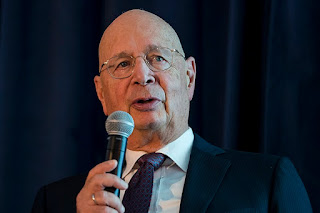Friday Hodgepodge
Friday, March 25, 2022
Blog Roundup
1. Jean Moroney of Thinking Directions offers a great tip for anyone facing unsolicited negative feedback:
[V]iew the criticizer as the canary in the coal mine. As you probably know, canaries were brought into coal mines as a safety device. Poisonous gases would kill the canary before they killed the miners. When the canary stopped singing, the miners still had a chance to escape with their lives.There are other tips leading up to this and Moroney is careful to indicate how to tell the difference between sincere negative feedback and what amounts to trolling.
Your canary is helping you, too.
For example, I spent 20 years in leadership roles in volunteer organizations where I needed to work with a lot of people. I remember identifying a canary at the beginning of one year. In the space of four days after my election, she gave me three pieces of criticism. After the third, I realized she's going to be giving me criticism all year, and I had better figure out how to deal with it.
Here's the perspective that made me relax: Her criticisms were early-warning signals for me. She would be bothered by things first, before the other people on my team were bothered. That would give me a chance to make sure issues wouldn't grow out of control, bothering other people, too.
2. At How to Be Profitable and Moral, Jaana Woiceshyn alerts readers to a problem they may not be aware of, even if they have heard of so-called "stakeholder capitalism." (I regard that term as a package-deal of profit and charity (at best)):
The proper term for a regulatory structure that demands businesses dispose of their capital and effort at the behest of the government is fascism.Although many corporate leaders -- Larry Fink of BlackRock, Marc Benioff of Salesforce, and other regular CEO attendees at WEF's Davos meetings -- have voluntarily signed up, [Klaus] Schwab wants to extend the new stakeholderism's reach. With the support of government leaders such as Joe Biden, regulations requiring corporations to report their achievement of environmental, social, and governance (ESG) goals to serve stakeholders have been introduced (so far in the United States, EU, and Canada) to ensure all corporate leaders' participation.
Klaus Schwab, Fascist (Image by Foundations World Economic Forum, via Wikimedia Commons, license.)
3. At the Redneck Intellectual Substack blog, historian C. Bradley Thompson calls for "a new abolitionism:"
These are -- to be sure -- radical claims, but they are demonstrably true, and the abolition of public schools is an idea whose time has come. It is time for Americans to reexamine -- radically and comprehensively -- the nature and purpose of their disastrously failing (and immoral) public school system, and to launch a new abolitionist movement, a movement to liberate tens of millions of children and their parents from this form of low-grade bondage.I agreed before I read this, and I was still shocked by some of the intolerable actions done by governments in the name of "education" he recounted along the way -- from a Swedish boy being kidnapped from a plane to a Texan student (who worked to support her siblings) having to spend a day in jail for "truancy."
Please read it all and pass the word!
4. Brian Phillips of the Texas Institute for Property Rights makes a tactical suggestion all advocates of freedom might remember, for those times one is asked how something would be done in freedom.
It can be useful to admit when one does not know, and to cite prior instances of freedom working its non-magical miracles:
I then explained that, for seventy years, we were told that telephone service could only be provided by a regulated and protected monopoly. We had no options when it came to telephone service. We couldn't even own a phone. The government prohibited competition. However, when the government removed the prohibitions on competition, prices plummeted, and consumers had many more choices. There is no reason to believe that the same wouldn't happen in health care. I didn't change his mind, and I didn't expect to in a single conversation. However, he acknowledged that I was making an interesting argument. And that is far better than taking him down a rabbit hole.In line with this and the previous post, do recall all those tutoring pods that parents organized during the pandemic while government schools were closed. Even better, one can look abroad for how even the poorest somehow educate their children without the nanny state:
In slums around the world, from Lagos, Nigeria and Nairobi, Kenya to rural villages in Ghana and China and places in between, [James] Tooley has discovered poor people opening small private schools that offer alternatives to dismal or inaccessible public education. The schools charge only pennies a day, and most also provide scholarships to orphans or children of the indigent. One in five students in the Hyderabad slums, for example, attends a private school on some kind of need-based scholarship. Whether in Kibera (Kenya) or Gansu (China), these schools all seem to boast committed and punctual teachers, efficient and attentive owners, and satisfied parents.Such answers don't always exist yet, but they're good to know about, when they do.
-- CAV


No comments:
Post a Comment